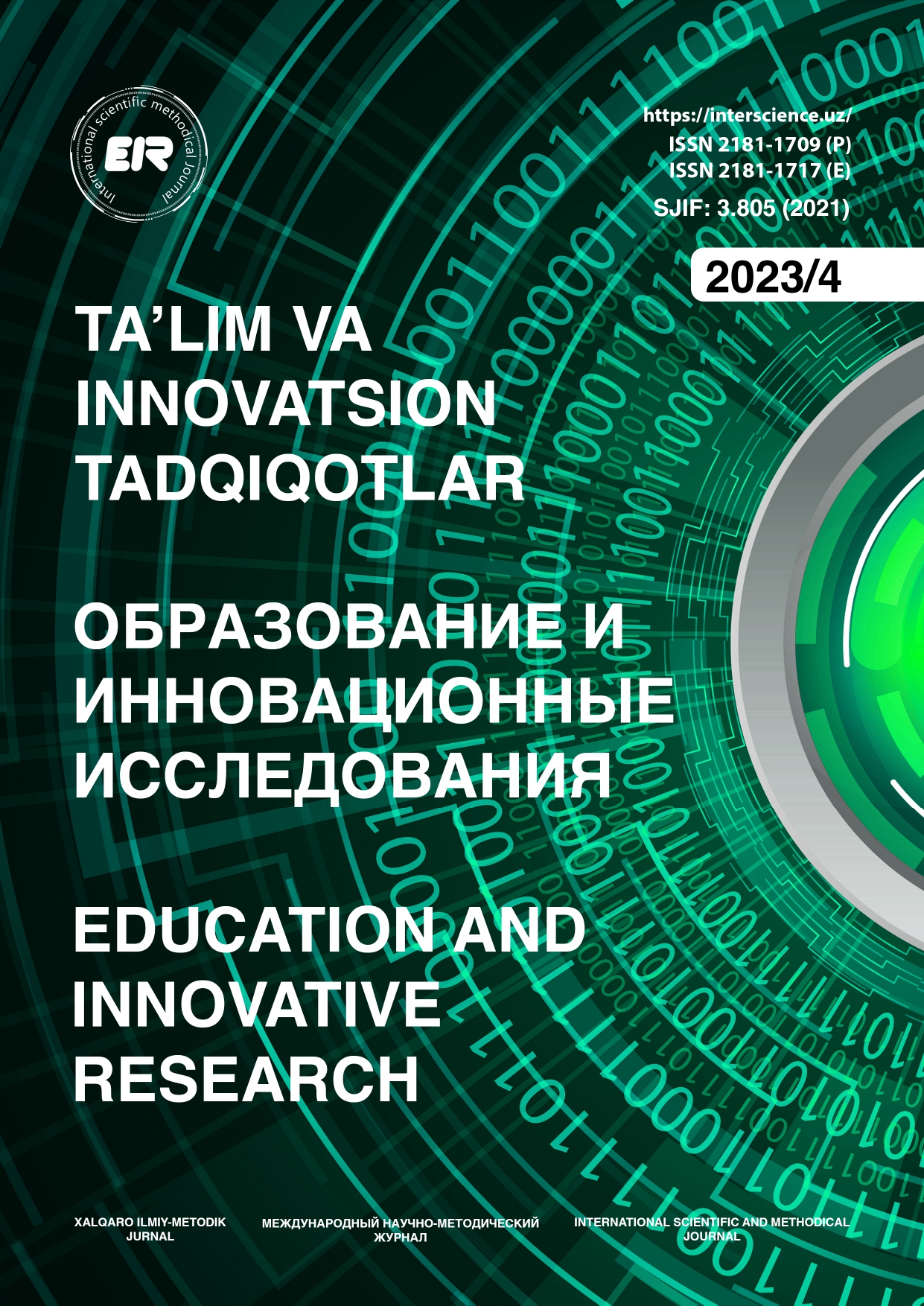IS MATH FUN?
Aripova Elena Azizovna, Kim Igor Lavrentievich, Surkov Dmitry Yurievich Teachers of Westminster International University in Tashkent
Keywords:
Online learning, games, interactive teaching approachesAbstract
The article discusses the reasons for the need to use games in teaching mathematics. This study is descriptive and its results suggest some practical solutions that can be applied in teaching.
References
Bourgonjon, J., Valcke, M., Soetaert, R., Schellens, T. 2010. Students’ perception about the use of video games in the classroom. Computers & Education, vol. 54, no.4, pp. 1145-1156.
Bourgonjon, J., De Grove, F., De Smet, C., Van Looy, J., Soetaert, R., & Valcke, M.
Acceptance of game-based learning by secondary school teachers. Computers & Education, vol. 67, pp. 21-35.
Egenfeldt-Nielsen, S., Meyer, B., & Holm Sørensen, B. 2011. Serious Games in Education – A Global Perspective [E-book]. Copenhagen: Aarhus University Press.
Erkkilä, M. 2017. Learning English from Digital Games: Finnish upper secondary school students’ perspective on game-enhanced language learning. Helsinki: University of Jyväskylä.
Grof, J., Howells, C. and Cranmer, S. 2012. «Console Game-Based Pedagogy: A Study of Primary and Secondary Classroom Learning through Console Video Games», International Journal of Game-Based Learning, Vol. 2, No. 2, pp 35-54.
Ho, J. 2020. Gamifying the fipped classroom: how to motivate Chinese ESL learners? Innovation in Language Learning and Teaching, 14:5, 421-436, https://doi. org/10.1080/17501229.2019.1614185.
Houghton, E., Aston, H., Featherstone, G., Perrotta, C., Houghton, E., & Aston, H. et al. (2013). Game-based
learning: Latest evidence and future directions. Slough: NFER.: (NFER Research
Programme:
Innovation in Education). Retrieved from https://www.nfer.ac.uk/publications/GAME01
Lengeling, M. and Malarcher, C., 1997. Index Cards: A Natural Resource for Teachers. ‘Forum’ , October – December 1997 ., Vol. 35(No 4), p.Page 42.
Mathe, M. 2020. Mapping the Landscape of Digital Game-Based Learning in Swedish Compulsory and Upper-Secondary Schools – Opportunities and Challenges for Teachers [Doctoral dissertation thesis] Report Series, Department of Computer
and System Sciences, Stockholm University.
Mifsud, C., Vella, R. & Camilleri, L. 2013. Attitudes towards and efects of the use of video games in classroom learning with specifc reference to literacy attainment. Research in Education, 90(1), 32-52. https://doi.org/10.7227%2FRIE.90.1.3.
Prensky, M. 2007. “Why Education and Training Have Not Changed”. In Digital Game-Based Learning, McGraw-Hill.
Sundqvist, P., & Wikström, P. 2015. Out-of-school digital gameplay and in-school L2 English vocabulary outcomes. System, 51, pp. 65–76. http://dx.doi.org/10.1016/j. system.2015.04.001
Sylvén, L. K. 2013. CLIL in Sweden – Why does it not work? A Metaperspective on CLIL across contexts in Europe. International Journal of Bilingual Education and Bilingualism, 16(3), pp 301-320. doi.org/10.1080/13670050.2013.777387
Wiklund, M., & Glimbert, L. Students perception of a learning environment and the teachers role while using unmodifed computer games as learning tools in upper secondary education. Department of Computer and Systems Sciences. Stockholm University.
Yu, Z., Gao, M., & Wang, L. 2020. The efect of educational games on learning outcomes, student motivation, engagement and satisfaction. Journal of Educational Computing Research. 1(1) pp 1-25. doi.org/10.1177/0735633120969214.
Xu, Z., Chen, Z., Eutsler, L., Geng, Z., & Kogut, A. 2020. A scoping review of digital game-based technology on English language learning. Education Tech Research. 68(3), pp. 877-904. doi.org/10 1007/s11423-019-09702-2.
Yue, W., & Zin, N. (2009). History educational games design. Institute of Electrical and Electronics Engineers (IEEE).





